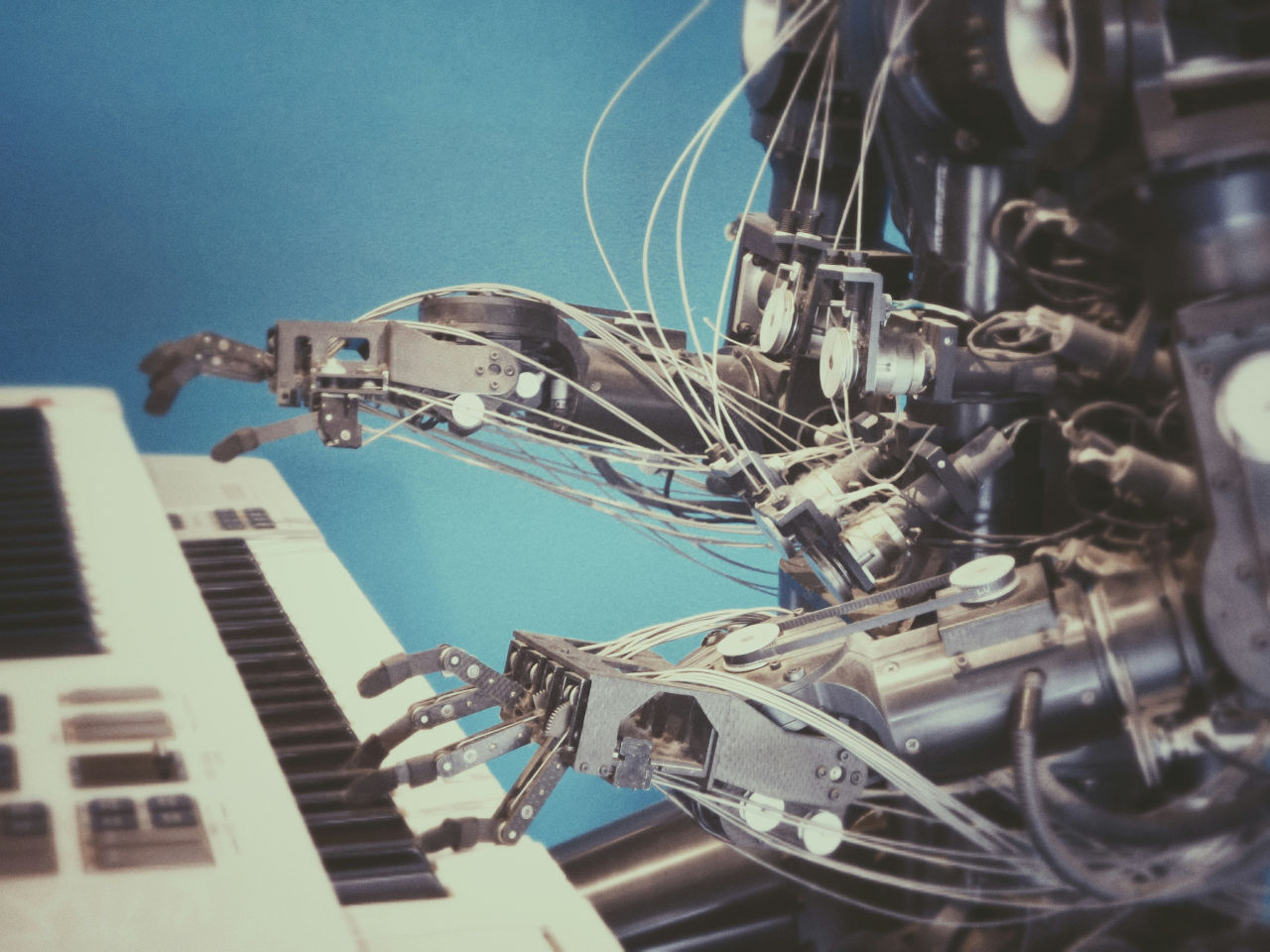Intelligent machines are already here. They’re learning, making decisions, and causing people all around the world to fear a Terminator-like apocalypse or relish the chance at a technological utopia.
Before we get to that point, however, we’re likely to see many incremental changes and advances as artificial intelligence creeps into different industries to tackle new and existing problems.
One industry ripe for such a design-overhaul is education. The classroom of today still relies on an old model—rows of desks all facing a blackboard, students passively absorbing information that spills from a single knowledgeable teacher. We know now that these environments are not very conducive to learning.
Thankfully technology is already making inroads. Thanks to the popularity of online courses such as MOOCs, and growing collection of ebooks, podcasts, documentaries and online lectures, education looks to have escaped the classroom and settled in nicely at our fingertips.
If there’s something else that can have a profound beneficial effect in the near future, artificial intelligence could well be it—one report predicted that AI in the education sector will grow by 47.5 percent by 2021. So, before we realize the utopia/apocalypse so often talked about, let’s look at how AI might disrupt education.
Automated Grading
Grading papers takes time. For teachers, that time could be better spent with students or on something more meaningful. For online courses, the influx of material makes human grading an expensive and difficult route, and so the more effective option is to limit questions to those that can be easily graded by a computer—yes/no, right/wrong, multiple choice, etc.
Grading essays and elaborate or complex answers requires a greater understanding of language. Not only will the AI need to comprehend enough to extract the larger concepts from the text, it will also need to spot the flaws and errors in thinking along the way, so that it can point them out and help correct for them.
While we have phones and devices that can talk with us, we are still some ways off AI that can understand the full range of linguistic complexities, with its metaphors, sarcasm, humor and all manner of hidden meaning. But that day is likely to come.
Instant Feedback
Computers have the benefit of being able to crunch numbers with more efficiency than we can. When they’re capable of assessing our knowledge, those assessments are likely to come back quickly and frequently—while improving in accuracy with every iteration.
As these educational AI collect information about each student, they will gain greater insight into their individual strengths and weaknesses. Not only will it be able to correct errors in each task, but it will identify the broader elements belonging to each student.
This AI could take psychological profiling to a new level. Rather than labeling people as INTJs, introverts, or optimists, it will have a precise and detailed analysis of the individual qualities that set them apart from everyone else. For those interested in the quantified self movement, this AI could help quantify our knowledge and personality like never before.
This insight, coupled with improved language capabilities, should set the stage for personalized AI tutors. These bots will coach us towards a desired learning goal, they’ll be able to answer our questions and provide feedback that is both fast and informed.
Content Curation
While AI is helping grade tests and direct students, it’s also likely to be involved in the development of, and interaction with, course materials. As the wealth of content grows so does the choice for what to learn and where to learn it, AI might curate and adapt this selection to meet individual needs, both long-term and in the moment.
The greater the variety of content and the more that it can be manipulated, the more our education can be self-directed. Instead of progressing linearly through chapters or lectures, we’ll be able to follow our curiosity through an expertly designed web of content. When we want to go in a new direction, the AI will have just the right thing to meet our objective while keeping us entertained and engaged.
Couple this with other emerging technologies such as virtual reality, and things might really take off. Immersive interactive worlds can make complex subjects more relatable and easier to grasp—cells can be blown up to reveal their inner complexities; chemicals can be combined without any danger of explosions; the laws of physics can be tested at very little cost (just take a look at what Labster is doing to revolutionize education).
It’s even better when AI can take these worlds and shape them to the individual. Such an AI will be able to adjust the difficulty level on the fly, perfectly matching obstacles and problems to the student’s capabilities. By maintaining a balance between too easy and too difficult, students will be more likely to persist over time, and will improve their chances of entering a flow state.
Collaboration and Competition
With most information being online and virtual reality essentially shutting us off from the outside world, an image of learning becoming a solitary endeavor is easy to conjure. But this should not always be the case, as working with others is a great way to share perspectives and ideas, allowing for greater creativity and promoting better recall.
Just as AI might adjust content to match the individual’s needs, so too should it be able to group people together in a way that can capitalize on their strengths. Faced with particular objectives and problems, the teams will then be required to use each of their skills if they’re to succeed.
Whether these groups work in the same physical environment or get together in virtual worlds to accomplish their tasks shouldn’t matter, as long as they’re cooperating and, perhaps, competing. A large part of the success of games is that you compete against others, gamifying education to include an element of competition will again boost engagement, with the AI helping to compose balanced teams.
From Classrooms To Virtual Worlds
As artificial intelligence and technology moves ahead at an accelerating speed, a shift from the old-school, lecture-based classroom approach towards education as an immersive learning game will be a welcome change. The more we can encourage people of all ages to focus their attention on topics and information of value, of substance, the better off the world will be.
Achieving that means making education as interesting, engaging, and enjoyable as all the other types of attention-grabbing technologies out there. Letting AI work some of its magic in adjusting when, where, and how we interact with the important stuff will be a step in the right direction.





I completely agree with these. AI can be of amazing help in the classroom. Thank you for sharing these topics!